Search Images
Browse Content (p. 1016)
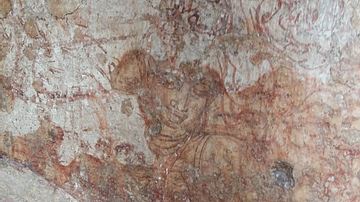
Image
Pallava Painting, Kanchipuram
Unknown face in a mural painting, Kailasanatha Temple, Kanchipuram, India. 700-720 CE.
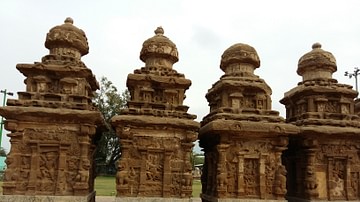
Image
Smaller Shrines, Kailasanatha Temple
Shrines built by King Rajasimha's queens. Kailasanatha Temple, Kanchipuram, India. 700-720 CE.
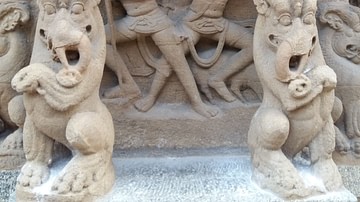
Image
Relief Sculptures, Kailasanatha Temple
Shiva and Arjuna in a fight, with yali-pillars on the front, Kailasanatha Temple, Kanchipuram, India. 700-720 CE.
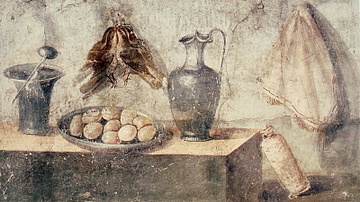
Image
Roman Fresco with Eggs, Birds & Bronze Dishes
A fresco depicting eggs, birds, and bronze dishes. From Pompeii c. 50-79 BCE. This fresco is part of the collection of the National Archaeological Museum of Naples.
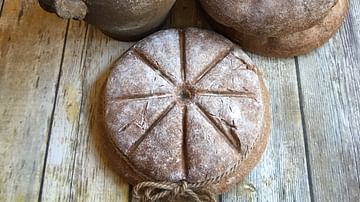
Image
Recreation of Panis Quadratus
A recreation of Panis Quadratus (or Panis Siligineus), a type of ancient Roman bread found carbonized in Pompeii, and depicted in Roman art.
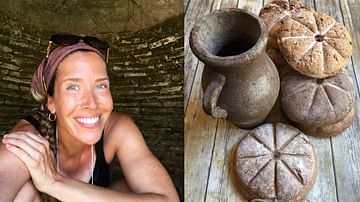
Image
Farrell Monaco & Panis Quadratus
(Left) Farrell Monaco, archaeologist and writer specializing in foodways, food preparation and food-related ceramics in the Roman Mediterranean. (Right) Monaco's recreation of Panis Quadratus, a type of ancient Roman bread.
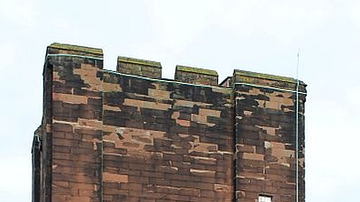
Image
Chester Castle
The exterior of the Agricola Tower, Chester Castle, Cheshire, England. Chester Castle was built in 1070 CE by Hugh d'Avranches, the second Earl of Chester.
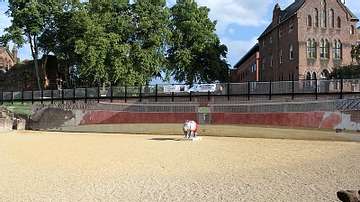
Image
Chester's Roman Amphitheatre
Hand-painted trompe l'oeil mural in Chester's Roman amphitheatre by Gary Drostle. Amphitheatre dates from the 1st century CE.

Image
Chester City
Street view - Chester City, Cheshire, England.
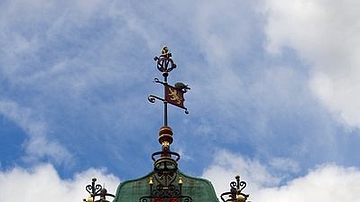
Image
Eastgate Clock Chester
The Eastgate Clock, Chester, Cheshire, England. Stands on the site of the original entrance to the Roman fortress of Deva Victrix. Installed in 1899 CE.